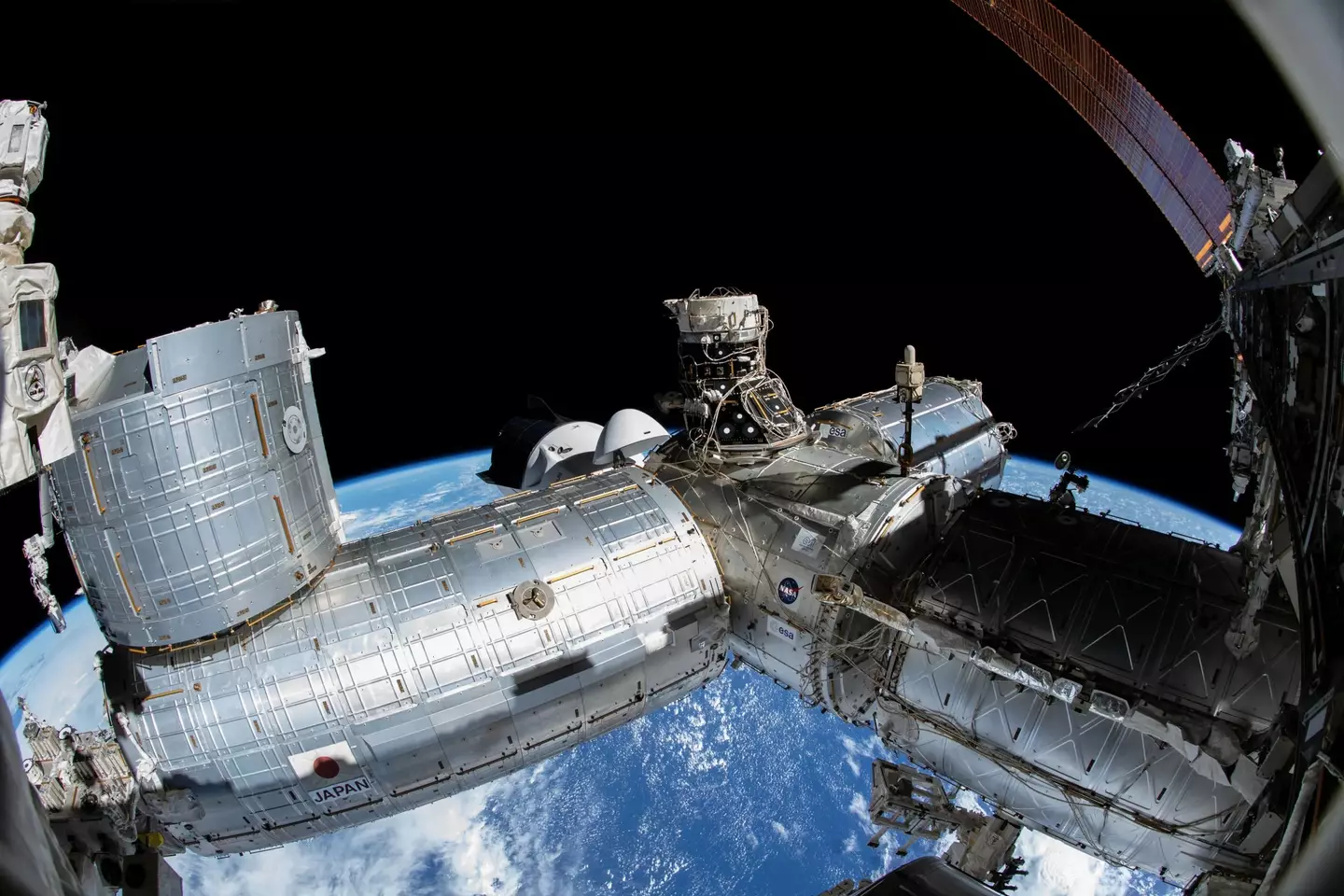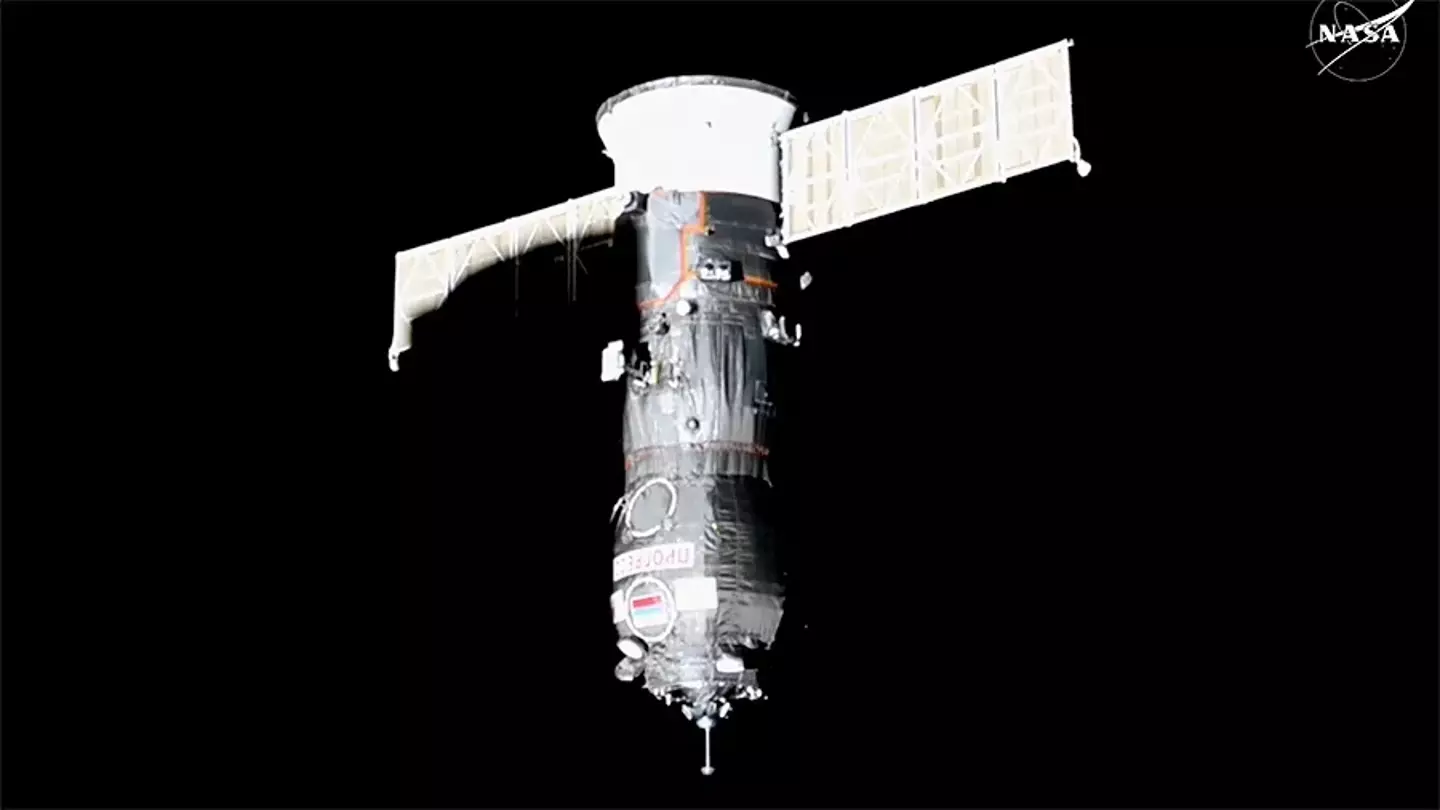
The International Space Station has been forced to take urgent evasive action to avoid a huge piece of space junk that could have ripped through it if contact had been made,
Known commonly as the ISS, the space station has been created over the last 26 years through a collaborative effort between NASA (USA), Roscosmos (Russia), ESA (Europe), JAXA (Japan), and CSA (Canada).
Orbiting the Earth more than 15 times a day, it is the largest space station ever built by humanity at a cost of $150 billion (£120 billion).
But the project was put at risk last week due to a piece of debris from a defunct weather satellite hurdling its way towards the space station.
Advert
It is yet another example of how the Kessler syndrome could eventually come true if humanity doesn't find an alternative path forward, with space junk having the possibility of changing humanity ever - and for the worse.
As a result of the looming object coming uncomfortably close to the ISS, the team on board - including stranded astronauts Sunita Williams and Barry Wilmore - performed a carefully executed manoeuvre to make sure the space station was not left with a huge hole smashed through it as a result of the piece of defunct satellite.
Key to the execution was the Progress 89 spacecraft, a Russian spaceship which regularly supplies the ISS with cargo and resupplied goods.

In a procedure lasting five minutes and 31 seconds, Progress used its thrusters to push the ISS and altering its orbit and flight path around the planet to ensure its safety and the safety of those on board.
NASA officially said it was needed 'to raise the orbit of the International Space Station to provide an extra margin of distance from a piece of orbital debris from a defunct defense meteorological satellite that broke up in 2015'.
If the manoeuvre had not been taken, NASA experts reckoned the space debris would have come within two and a half kilometres of the ISS - which is incredibly close in space terms.
The Progress 89 spacecraft had been at the ISS since August, delivering almost three tonnes of food, fuel, and supplies to the crew on board.
Talk has now turned to the Kessler syndrome and how this might become humanity's reality as space becomes more and more cluttered.

"Spent rockets, satellites and other space trash have accumulated in orbit increasing the likelihood of collision with other debris," NASA said in 2016.
"Unfortunately, collisions create more debris creating a runaway chain reaction of collisions and more debris known as the Kessler syndrome after the man who first proposed the issue, Donald Kessler."
In 1978, Kessler said that it would take 30 to 40 years to reach 'critical mass'; the point where collisions begin, even if no more objects are put into orbit.
Given that 40 years after was 2018, it is leaving some a little uncomfortable in their seats.
Hope in stopping the Kessler syndrome from taking a hold includes recycling space debris and recommissioned satellites.
The European Space Agency says it wants to become 'debris-neutral' by 2030, by which it means 'adding zero net debris to the Earth orbital environment', with a larger aim to reuse parts by 2050.
Topics: Space, US News, Technology, Science, World News, Russia, NASA